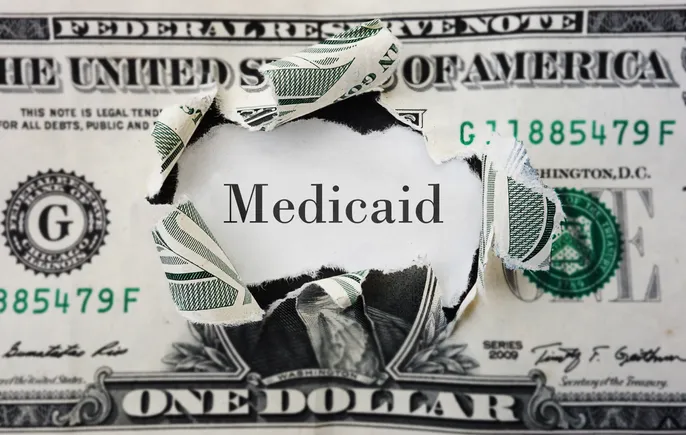Dive Brief:
Providers in Medicaid expansion states would see significant revenue losses and an increase in uncompensated care if lawmakers cut funding for expansion programs, according to a report by the Urban Institute and the Robert Wood Johnson Foundation.
If all 41 states with expanded Medicaid programs were to end them in response to decreased funding, a spike in the uninsured population would result in a decrease of $80 billion in spending on healthcare services next year. Meanwhile, services provided without reimbursement would rise by nearly $19 billion.
Hospitals would be the hardest hit, according to the analysis. Their revenue would fall by nearly $32 billion, while uncompensated care costs would increase by $6.3 billion.
Dive Insight:
Congressional Republicans are debating slashing funds for Medicaid to pay for President Donald Trump’s promised tax cuts, as well as increased spending on defense and border security.
Last month, House Republicans advanced a budget blueprint that directs the Energy and Commerce Committee, which oversees Medicare and Medicaid, to find $880 in spending cuts.
The budget resolution doesn’t specifically mention Medicaid. But Republicans are unlikely to meet their budget targets without slashing the safety-net insurance, which covers almost 80 million Americans along with the Children’s Health Insurance Program, according to a letter sent to lawmakers from the Congressional Budget Office last week.
One potential way to lower Medicaid spending is reducing the amount of money the federal government provides states to cover the cost of expanding the program to more beneficiaries.
Under the Affordable Care Act, the government pays 90% of the expenses for enrollees who are eligible for Medicaid under expansion — typically working people who can’t afford or aren’t offered coverage through their jobs, according to the report.
Slashing those funds would put significant pressure on their budgets, the Urban Institute and the Robert Wood Johnson Foundation said in a previous analysis. If all states that have expanded Medicaid drop their programs, the number of uninsured, non-elderly adults would increase by nearly 11 million.
The healthcare sector would also likely see reduced revenue, as uninsured people seek out less medical care. Nearly $21 billion less would be spent on prescription drugs, while services provided by office-based physicians would decline by $6.4 billion, according to the report. Other healthcare services, like home healthcare or dental care, would also fall by nearly $21 billion.
“A funding reduction of this magnitude would not only cause a massive coverage loss but would also be financially devastating for hospitals and other healthcare providers,” Katherine Hempstead, senior policy adviser at the Robert Wood Johnson Foundation, said in a statement. “Hospitals are major employers and are often the economic bedrock of their communities. These cuts would have major ripple effects on local economies, especially in rural areas.”
Providers would also take a financial hit from an increased burden of services that aren’t reimbursed. Uncompensated care would increase by $2.2 billion for physician practices and $6.6 billion for other healthcare services, as well as a $3.8 billion bump in uncompensated spending on prescription drugs.
More than half of the increase in uncompensated care will be financed by providers themselves, according to the analysis. Thirty percent would come from the federal government, while 19% would be financed by state and local governments.


